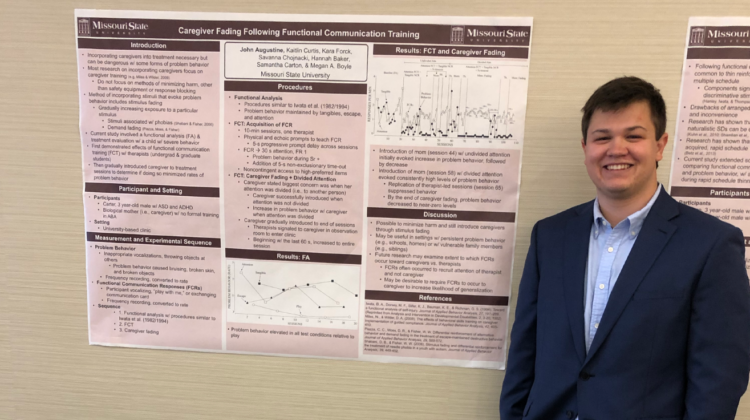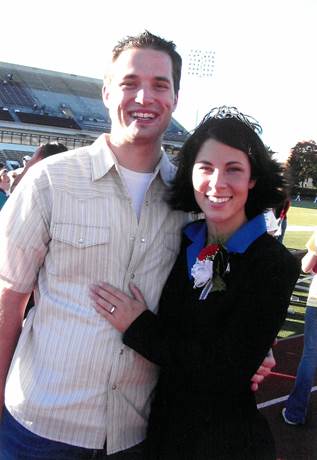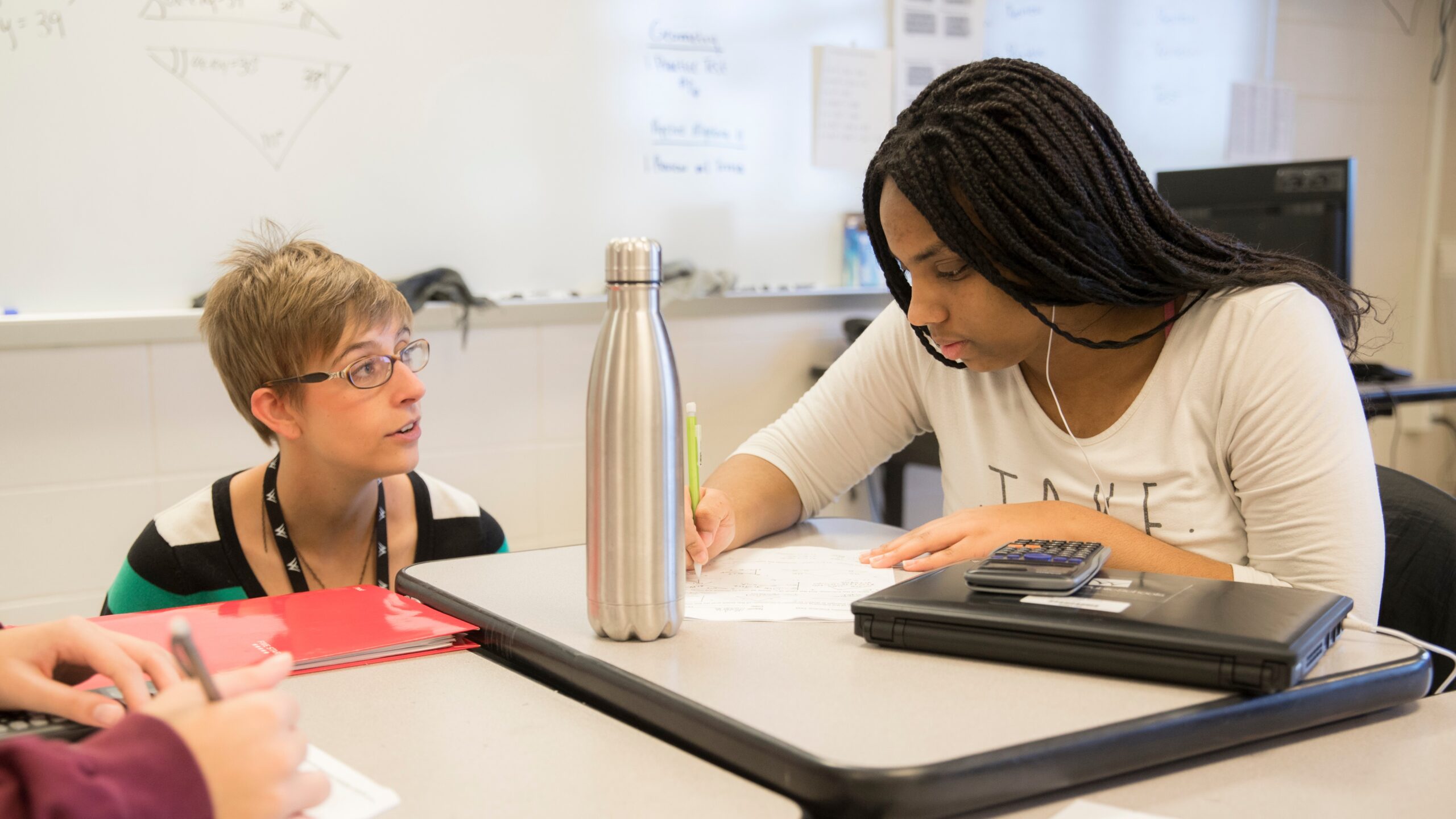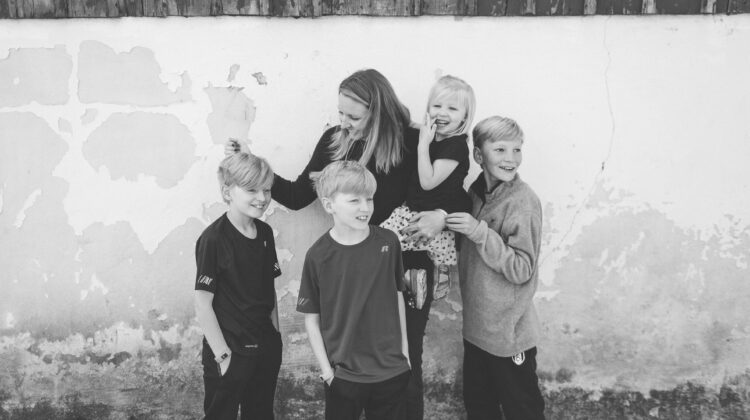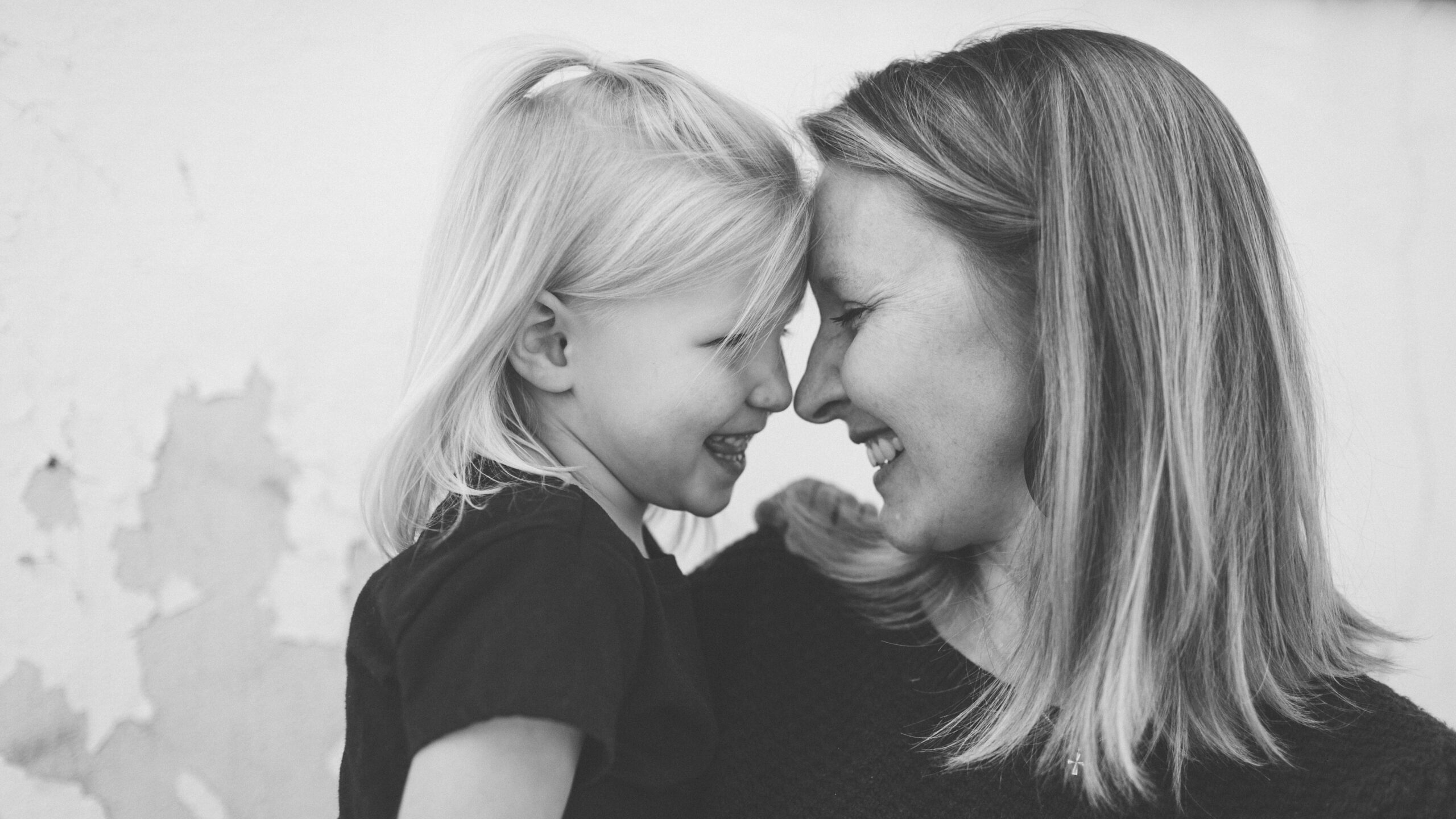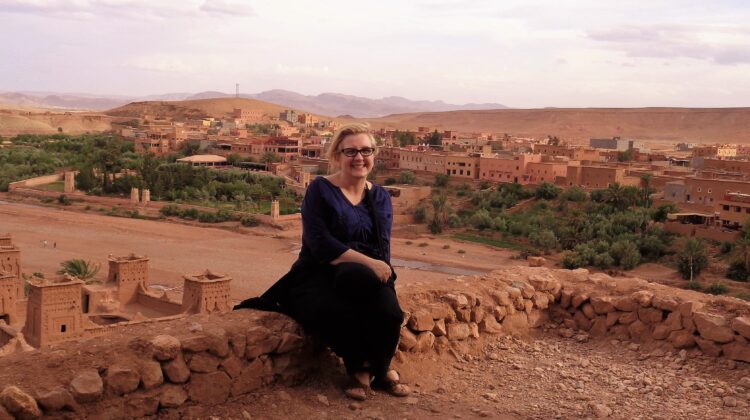Missouri State University graduate student John Augustine grew up in the small town of Farmington, Missouri. There, he watched a role model—his own father—work as principal of an at-risk school.
“He started his career as a special education teacher and later moved to administration,” Augustine said. “I specifically remember how connected he was to his students. He understood them, communicated effectively with them and provided them a positive educational experience.”
His father made such an influence that Augustine found himself working with students in special education settings, too.
“My father helped me understand how important it is to be a positive light in the classroom,” Augustine said.
Augustine is now on track to receive a master’s degree in special education with an emphasis in autism spectrum disorders. Augustine’s pursuit of an additional autism spectrum disorders graduate certificate will bolster his expertise.
“I love working in a school setting,” Augustine said. “My career goal is to consult schools and special education teachers to determine effective interventions for students with autism.”
Real world practice
Life as a graduate student at Missouri State gives Augustine just the experience he needs to follow in his father’s footsteps. On top of schoolwork, Augustine also works in an MSU-based clinic managed by Dr. Megan Boyle, associate professor of the counseling, leadership and special education department.
At the clinic, Augustine takes on roles such as data-collector and therapist, implementing evidence-based practices to increase or decrease certain behaviors in students with autism.
“Dr. Boyle does a great job in preparing students for their future in a clinical setting and teaching the importance of each task we complete,” Augustine said. “This is the type of job that requires you to learn. I hope to expand my knowledge to effectively implement strategies in my career.”
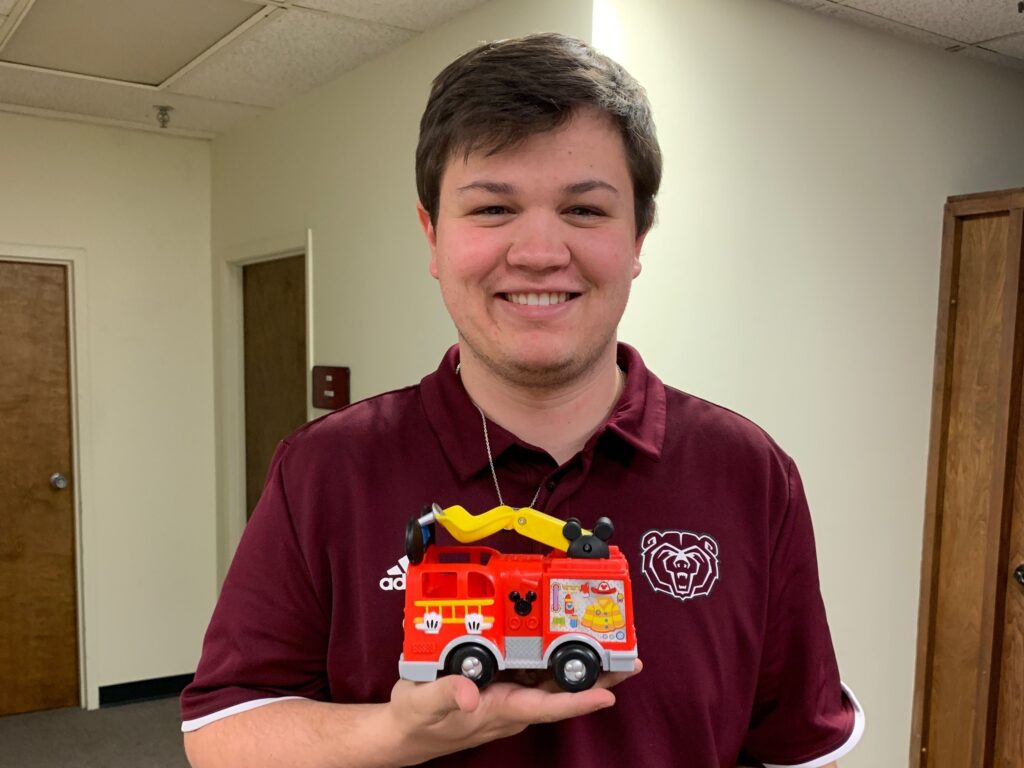
Resume boost
Learning experiences in Augustine’s program don’t stop there. Students are also granted the option to study Applied Behavior Analysis (ABA) and become a Board Certified Behavior Analyst (BCBA).
Augustine said confirmation by the Behavior Analyst Certification Board will further enhance his resume.
“If I’m able to accrue all my hours of study and pass a certification test, it will give me more opportunities to analyze data and make recommendations to improve target behaviors.” Augustine said. “I could change the lives of children with autism spectrum disorder or other disabilities.”
Augustine is currently completing his thesis alongside Dr. Linda Garrison-Kane, another special education professor.
“He has pursued numerous research and clinical opportunities during his undergraduate and graduate degree,” Garrison-Kane said. “His thesis focuses on the use of ICONNECT, a self-management technology application to assist in improving on-task academic behaviors in students with autism.
Augustine hopes the technology will improve students’ academic accuracy across assignments.
Empowered professional
Augustine often thinks back on the role his father played in students’ lives.
“Students who attended his school were in foster care or had been expelled from the other schools in the district,” Augustine said. “Although many did not have great home lives or a lot to look forward to, my father saw the capability of each student to progress in school and enjoy their education.”
Augustine hopes to one day be as great of an influence.
“I am trying to follow in his footsteps and create a better life for students—and maybe even one day change the world in some positive way.”

